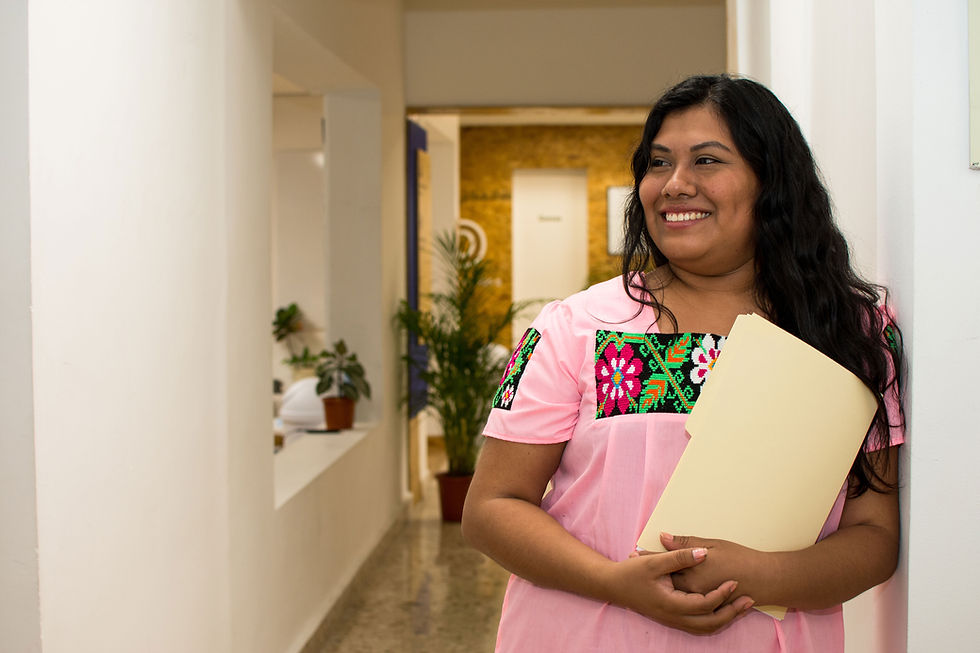When You Feel Like Nothing Around You Can Change, Remember YOU Can.
- Melissa Sims
- Mar 1, 2024
- 5 min read
On our latest podcast episode, Teresa and I had a lengthy discussion about incorporating - you guessed it - mindfulness into our eating routine. If you haven’t heard of mindful eating, it is a fantastic tool to help you not only release weight (if you would like to), get healthy, and appreciate food, but also actually begin to enjoy the entire process of eating altogether. This brings me to our post today.
We ALL (yes, Teresa and I included) get tired of our jobs, become bored, or generally have a little burnout with our careers. How do we get past that feeling?
The benefits of mindfulness are profound and diverse, ranging from improved mental health to enhanced productivity. But did you know that it can improve job satisfaction? Listen, if mindfulness can make me actually enjoy eating a piece of broccoli, it stands to reason that it can make me enjoy creating a PowerPoint, right? Mindfulness stands out as a powerful tool to transform our relationship with work, fostering a more fulfilling and rewarding professional life.

Mindfulness in the workplace is about integrating mindfulness practices into our daily work routines. It involves paying attention to our thoughts, feelings, bodily sensations, and the environment around us with an attitude of openness, curiosity, and non-judgment. This mindful presence helps us become more aware of our work habits, communication patterns, and reactions to stress, allowing us to respond more effectively to the challenges we face.
I will admit, I get a little antsy doing the same thing repeatedly. It could be because my life was filled with constant change when I was young, and now my psyche actually craves change. Whatever the reason, I find my mind wandering and my focus waning when I am doing the more repetitive part of my job. And it isn’t because I don’t love what I do. I absolutely love this work and I love supporting people that make the world a better place (I am talking about YOU!). It is human nature and totally normal to become a little numb or bored when doing the same thing over and over. So I am going to try something new to breathe new life into my work, and I would encourage you to try the same.
I am going to treat it like mindful eating. I am going to try focusing on each step of my daily routine, one day at a time. I may only make it one whole day, I may make an entire week. I am going to pay careful attention to the smell of the coffee as it roasts while I snuggle with my dog, appreciating how soft her fur is, and watch the sun come up on the plants in my backyard. This is just the first 10 minutes of my day. Imagine how wonderful your day might become if you could notice this much throughout the entire day!
Our job satisfaction is a complex phenomenon influenced by various factors, including work environment, job role, relationships with colleagues, and personal fulfillment from work. How can you apply this to your job, outside of your personal home routines?
As I mentioned with my own routine, start the day mindfully. Begin your workday with a short mindfulness practice, such as deep breathing, meditation, or setting positive intentions for the day ahead. This puts you in a mindful state and places you on track to remain that way through the day.
For at least the first few tries, pay close attention to each and every task you do for the entire day, even the smallest duties that aren’t really things that you have to consciously do. When we make the unconscious conscious, you are bringing mindful attention to the forefront. You might find some small appreciation for something you never did before.
Practice mindful communication, which we’ve covered in our workshops. Listen actively and attentively during meetings and conversations, without judgment or interruption. Respond mindfully, considering your words and tone before speaking. We have several videos on our YouTube channel that can be useful to you if you need some refreshers.
Remember to take mindful breaks. Incorporate short mindfulness breaks throughout the day to reset and refocus your mind. This could include a few minutes of deep breathing, stretching, or even a quick walk outside. Even if the break you are able to take is as short as 5 minutes, it is critically important to do this. It interrupts the mundanity of your tasks and refreshes your focus.
Practice mindful eating at work! Pay attention to your food and eating habits during lunch or snack breaks. Eat slowly, savoring each bite, and being fully present with the experience of nourishing your body. This will not only help you to enjoy the process of eating, it will also encourage you to take a real lunch break…instead of a 10-minute snack of a few crackers and a piece of cheese (guilty as charged).
When transitioning between tasks, do so mindfully by taking a moment to pause, breathe, and consciously shift your focus before moving on to the next task. Because we know you aren’t multitasking, right?
At the end of the day, take a few minutes to reflect on your experiences and actions. Notice any patterns or habits, and consider how you can integrate more mindfulness into your work routine for the following day.
All of these small shifts in your day can refresh your perspective and appreciation for what you do. It can reduce stress & burnout, improve your communication and relationships, and even make you more adaptable to change.
One of the greatest benefits of incorporating mindfulness into your work is the possibility of realizing your personal fulfillment and the rewarding nature of what you do. It can open up your mind to new possibilities for growth and knowledge. Mindfulness encourages us to reflect on our values, goals, and the impact of our work. This introspection can lead to a deeper sense of purpose and fulfillment in our jobs. When we find meaning in our work, it enhances our overall job satisfaction, as we're more likely to feel that our efforts are contributing to something significant.
There are many things that we have zero control over, especially when we deal with so many different entities. It’s easy to feel small, and to feel a little insignificant. But in reality, nothing you do is insignificant. It all matters, and matters a whole lot to the people you serve. So when you feel like there’s nothing you can do to change things - shift that perspective. You can change YOU, and how YOU take in the world.
So, next week, as I return to work after a little vacation with my family, I am going to take it all in - the PowerPoints, the spreadsheets, the conversations, the a-ha moments, the touching call with a client - ALL OF IT. I hope you take the time to do the same.
If you'd like to watch the podcast episode about mindful eating, here you go!










Comments